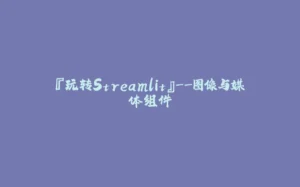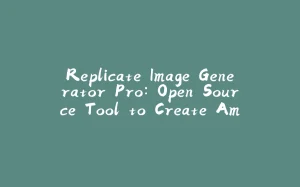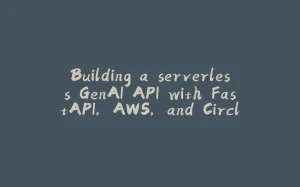Google Cloud’s Artifact Registry is a powerful tool for managing your application’s dependencies. This guide demonstrates how to create a Cloud Build pipeline to enable Docker to access Python packages stored in Artifact Registry. By following these steps, you can securely manage dependencies and streamline deployments.
Prerequisites
- Google Cloud Project: Ensure you have a GCP project set up.
- Artifact Registry: A Python repository should already be configured in the Artifact Registry.
- Cloud Build: Enable the Cloud Build API for your project.
- Authentication: Configure service account permissions to access the Artifact Registry.
Steps to Configure Cloud Build
1. Generate an Artifact Registry Token
Use gcloud auth to generate an access token that will allow the Docker build process to authenticate with the Artifact Registry. Here’s how you can do this:
<span>steps</span><span>:</span><span># Generate Artifact Registry token</span><span>-</span> <span>name</span><span>:</span> <span>'</span><span>gcr.io/google.com/cloudsdktool/cloud-sdk'</span><span>entrypoint</span><span>:</span> <span>bash</span><span>args</span><span>:</span><span>-</span> <span>'</span><span>-c'</span><span>-</span> <span>|</span><span>art=$(gcloud auth print-access-token)</span><span>echo "$art" > /workspace/artifact_registry_token</span><span>echo "$art"</span><span>steps</span><span>:</span> <span># Generate Artifact Registry token</span> <span>-</span> <span>name</span><span>:</span> <span>'</span><span>gcr.io/google.com/cloudsdktool/cloud-sdk'</span> <span>entrypoint</span><span>:</span> <span>bash</span> <span>args</span><span>:</span> <span>-</span> <span>'</span><span>-c'</span> <span>-</span> <span>|</span> <span>art=$(gcloud auth print-access-token)</span> <span>echo "$art" > /workspace/artifact_registry_token</span> <span>echo "$art"</span>steps: # Generate Artifact Registry token - name: 'gcr.io/google.com/cloudsdktool/cloud-sdk' entrypoint: bash args: - '-c' - | art=$(gcloud auth print-access-token) echo "$art" > /workspace/artifact_registry_token echo "$art"
Enter fullscreen mode Exit fullscreen mode
2. Use the Token in Docker Build
Once the token is generated, it can be passed to the docker build process as a build argument. Here’s how:
<span>-</span> <span>name</span><span>:</span> <span>gcr.io/cloud-builders/docker</span><span>id</span><span>:</span> <span>Build</span><span>env</span><span>:</span><span>-</span> <span>'</span><span>btf=/workspace/artifact_registry_token'</span><span>entrypoint</span><span>:</span> <span>bash</span><span>args</span><span>:</span><span>-</span> <span>'</span><span>-c'</span><span>-</span> <span>|</span><span>docker build \</span><span>--build-arg ARTIFACT_REGISTRY_TOKEN=$(cat $btf) \</span><span>--build-arg PROJECT_ID=$PROJECT_ID \</span><span>-t test-image:latest \</span><span>-f Dockerfile .</span><span>-</span> <span>name</span><span>:</span> <span>gcr.io/cloud-builders/docker</span> <span>id</span><span>:</span> <span>Build</span> <span>env</span><span>:</span> <span>-</span> <span>'</span><span>btf=/workspace/artifact_registry_token'</span> <span>entrypoint</span><span>:</span> <span>bash</span> <span>args</span><span>:</span> <span>-</span> <span>'</span><span>-c'</span> <span>-</span> <span>|</span> <span>docker build \</span> <span>--build-arg ARTIFACT_REGISTRY_TOKEN=$(cat $btf) \</span> <span>--build-arg PROJECT_ID=$PROJECT_ID \</span> <span>-t test-image:latest \</span> <span>-f Dockerfile .</span>- name: gcr.io/cloud-builders/docker id: Build env: - 'btf=/workspace/artifact_registry_token' entrypoint: bash args: - '-c' - | docker build \ --build-arg ARTIFACT_REGISTRY_TOKEN=$(cat $btf) \ --build-arg PROJECT_ID=$PROJECT_ID \ -t test-image:latest \ -f Dockerfile .
Enter fullscreen mode Exit fullscreen mode
3. Create the Dockerfile
The Dockerfile is configured to use the token to download Python packages from Artifact Registry:
<span># syntax=docker/dockerfile:1</span><span>FROM</span><span> python:3.11-slim</span><span>ARG</span><span> ARTIFACT_REGISTRY_TOKEN</span><span>ARG</span><span> PROJECT_ID</span><span># Keeps Python from buffering stdout and stderr</span><span>ENV</span><span> PYTHONUNBUFFERED=1</span><span>WORKDIR</span><span> /app</span><span>RUN </span>pip <span>install</span> <span>--no-cache-dir</span> <span>-r</span> requirements.txt<span>COPY</span><span> . .</span><span># Install dependencies using the token</span><span>RUN </span>pip <span>install</span> <span>\ </span> <span>--index-url</span> https://pypi.org/simple <span>\ </span> <span>--extra-index-url</span> https://oauth2accesstoken:<span>${</span><span>ARTIFACT_REGISTRY_TOKEN</span><span>}</span>@us-central1-python.pkg.dev/<span>${</span><span>PROJECT_ID</span><span>}</span>/python-packages/simple/ <span>\ </span> <span>"your-package-name==your-package-version"</span><span># Expose the application port</span><span>EXPOSE</span><span> 8080</span><span># Command to run the application</span><span>CMD</span><span> ["uvicorn", "main:app", "--port=8080", "--host=0.0.0.0"]</span><span># syntax=docker/dockerfile:1</span> <span>FROM</span><span> python:3.11-slim</span> <span>ARG</span><span> ARTIFACT_REGISTRY_TOKEN</span> <span>ARG</span><span> PROJECT_ID</span> <span># Keeps Python from buffering stdout and stderr</span> <span>ENV</span><span> PYTHONUNBUFFERED=1</span> <span>WORKDIR</span><span> /app</span> <span>RUN </span>pip <span>install</span> <span>--no-cache-dir</span> <span>-r</span> requirements.txt <span>COPY</span><span> . .</span> <span># Install dependencies using the token</span> <span>RUN </span>pip <span>install</span> <span>\ </span> <span>--index-url</span> https://pypi.org/simple <span>\ </span> <span>--extra-index-url</span> https://oauth2accesstoken:<span>${</span><span>ARTIFACT_REGISTRY_TOKEN</span><span>}</span>@us-central1-python.pkg.dev/<span>${</span><span>PROJECT_ID</span><span>}</span>/python-packages/simple/ <span>\ </span> <span>"your-package-name==your-package-version"</span> <span># Expose the application port</span> <span>EXPOSE</span><span> 8080</span> <span># Command to run the application</span> <span>CMD</span><span> ["uvicorn", "main:app", "--port=8080", "--host=0.0.0.0"]</span># syntax=docker/dockerfile:1 FROM python:3.11-slim ARG ARTIFACT_REGISTRY_TOKEN ARG PROJECT_ID # Keeps Python from buffering stdout and stderr ENV PYTHONUNBUFFERED=1 WORKDIR /app RUN pip install --no-cache-dir -r requirements.txt COPY . . # Install dependencies using the token RUN pip install \ --index-url https://pypi.org/simple \ --extra-index-url https://oauth2accesstoken:${ARTIFACT_REGISTRY_TOKEN}@us-central1-python.pkg.dev/${PROJECT_ID}/python-packages/simple/ \ "your-package-name==your-package-version" # Expose the application port EXPOSE 8080 # Command to run the application CMD ["uvicorn", "main:app", "--port=8080", "--host=0.0.0.0"]
Enter fullscreen mode Exit fullscreen mode
4. Add Build Config Options
Finally, define other configurations such as machine type, logging, and substitutions:
<span>options</span><span>:</span><span>machineType</span><span>:</span> <span>E2_HIGHCPU_8</span><span>substitutionOption</span><span>:</span> <span>ALLOW_LOOSE</span><span>logging</span><span>:</span> <span>CLOUD_LOGGING_ONLY</span><span>substitutions</span><span>:</span><span>_PACKAGE</span><span>:</span> <span>your-package-name==your-package-version</span><span>_REPOSITORY</span><span>:</span> <span>python-packages</span><span>_LOCATION</span><span>:</span> <span>us-central1</span><span>_PROJECT_ID</span><span>:</span> <span>your-project-id</span><span>options</span><span>:</span> <span>machineType</span><span>:</span> <span>E2_HIGHCPU_8</span> <span>substitutionOption</span><span>:</span> <span>ALLOW_LOOSE</span> <span>logging</span><span>:</span> <span>CLOUD_LOGGING_ONLY</span> <span>substitutions</span><span>:</span> <span>_PACKAGE</span><span>:</span> <span>your-package-name==your-package-version</span> <span>_REPOSITORY</span><span>:</span> <span>python-packages</span> <span>_LOCATION</span><span>:</span> <span>us-central1</span> <span>_PROJECT_ID</span><span>:</span> <span>your-project-id</span>options: machineType: E2_HIGHCPU_8 substitutionOption: ALLOW_LOOSE logging: CLOUD_LOGGING_ONLY substitutions: _PACKAGE: your-package-name==your-package-version _REPOSITORY: python-packages _LOCATION: us-central1 _PROJECT_ID: your-project-id
Enter fullscreen mode Exit fullscreen mode
Tags and Metadata
To organize your builds better, include meaningful tags:
<span>tags</span><span>:</span><span>-</span> <span>gcp-cloud-build</span><span>-</span> <span>artifact-registry</span><span>-</span> <span>docker-python-packages</span><span>tags</span><span>:</span> <span>-</span> <span>gcp-cloud-build</span> <span>-</span> <span>artifact-registry</span> <span>-</span> <span>docker-python-packages</span>tags: - gcp-cloud-build - artifact-registry - docker-python-packages
Enter fullscreen mode Exit fullscreen mode
Summary
This setup ensures that your Docker builds in Cloud Build can securely pull Python dependencies from your Artifact Registry using an access token. Adjust the provided configuration to your project-specific details, such as package names, repository URLs, and deployment targets.
Implementing this pipeline will improve security and make dependency management seamless for your projects.
原文链接:How to Create a Cloud Build to Allow Docker to Download Python Packages from Artifact Registry



























暂无评论内容